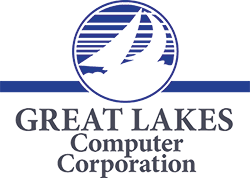Get prepared for Cyber Insurance deadlines! Learn the importance of honesty when completing forms for your coverage.
Tips for Completing Cyber Insurance Forms: Don’t Risk Your Coverage by Fudging the Truth
The World Economic Forum (WEF) says that cyberattacks are among the top 10 risks in the world. To mitigate this risk, companies often purchase cyber insurance policies. These policies cover various risks, such as data restoration, computer fraud and business interruption. However, having coverage is not enough — keeping it is equally important. If you’re dishonest when filling out the cyber insurance application, it could lead to coverage denial. Therefore, it’s crucial to be truthful when completing the forms.
Below, we cover the effects of falsehoods on cyber insurance forms, the significance of revealing all pertinent details, how to accurately and truthfully complete cyber insurance forms, and the insurance company’s role in safeguarding your business against cyber threats.
The Consequences of Lying on Cyber Insurance Forms
The cost of cyber insurance in the U.S. increased 79% in the second quarter of 2022 due to insurance companies becoming more cautious about risk. Insurers are paying closer attention to the cyber practices of companies, and insurance has become harder to get. So it’s crucial to have your house in order.
Misrepresentations, incorrect statements, or omissions in the application for the policy could result in coverage denial. Moreover, it can lead to a rescinded policy, meaning you’ll bear the cost of any damages. In short, being dishonest when completing the forms can result in losing insurance coverage and financial repercussions for your business.
The Importance of Disclosing All Relevant Information
You must disclose all relevant information in your cyber insurance application to be protected. Your application will typically contain a privacy and security liability questionnaire and a section on information security. Insurance providers require effective company cybersecurity policies for coverage, such as multifactor authentication, employee training on phishing and other types of cyberattacks, regulatory reporting obligations, and more. Compliance is crucial with these requirements throughout the policy to keep your coverage.
How Honesty Can Benefit Your Business in the Long Run
Being truthful in your application can have long-term benefits for your business. You can avoid coverage denial or policy rescission, ensuring protection in the event of a cyberattack. Secondly, if you disclose all relevant information, your insurer can recommend best practices to strengthen your cybersecurity. Finally, transparency builds trust with your insurance company, which can lead to more favorable terms in the future.
Tips for Filling out Cyber Insurance Forms Accurately and Truthfully
The key to filling out cyber insurance forms accurately and truthfully is knowing your data security practices and procedures. Ensure you have a written information security policy (WISP) that sets procedures for evaluating methods for collecting, accessing, storing and protecting your data. According to the American Bar Association, holes in the cyber insurance net stem from the insured’s failure to understand its security measures, and many companies don’t have a WISP. You must be aware of the risks and the security measures to protect yourself. Answer all the questions truthfully and disclose all relevant information.
Secure Your Company’s Future
Don’t wait until it’s too late — contact Great Lakes Computer now to discuss your cyber insurance options and secure your company’s future.




